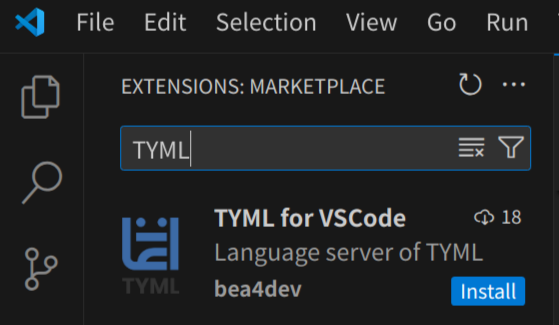Quick Start
1. Install the VSCode Extension🔗
Install TYML for VSCode from the VSCode Marketplace.

2. Define Your API🔗
Create a file named api.tyml anywhere.
interface API
3. Install TYML CLI Tools🔗
Install with the following command (requires Rust’s cargo):
4. Generate Code and Implement🔗
In this example, the server is Rust and the client is TypeScript.
Server (Rust)🔗
First, create a test crate.
Then generate types using the api.tyml defined in step 2.
If you see Success!, it worked.
Add the generated api plus async-trait and tokio to Cargo.toml:
[]
= { = "./api/" }
= "0.1"
= { = "1", = ["full"] }
Finally, edit main.rs to implement the API.
use ;
use async_trait;
async
Client🔗
Generate TypeScript types.
Then create main.ts inside ./api-example-client and call the API.
;
5. Run🔗
Run the following commands in the server and client directories respectively.
Server🔗
Client🔗
Result🔗
If the client prints Hello, world!, it worked.